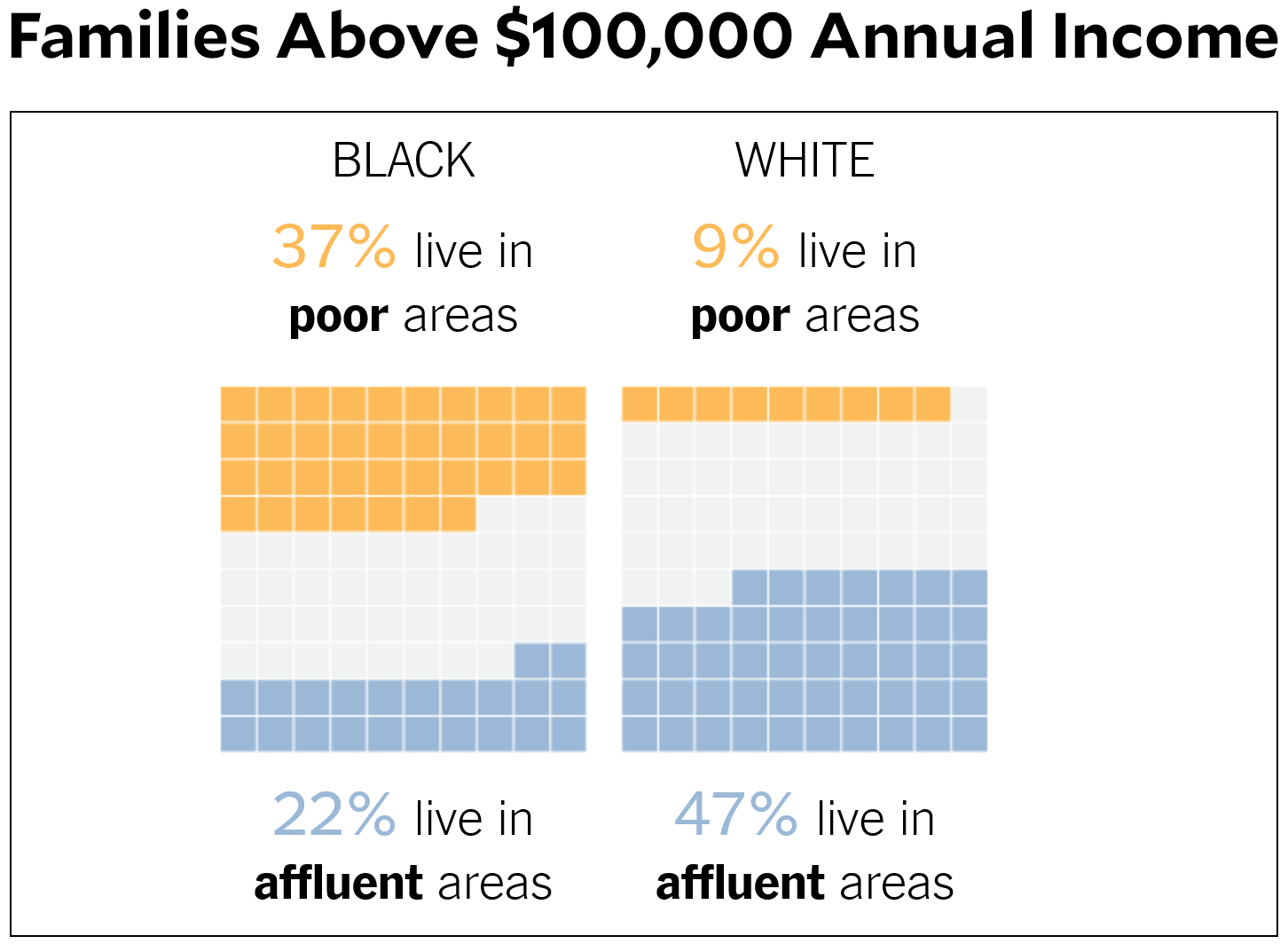Over at Vox, Sean Illing interviews Nikole Hannah-Jones about race and segregation in America. She identifies segregation in schools and housing as the primary barriers to equality:
Segregation is not about test scores; it’s about denying full citizenship to a caste of children who have not, for one day in this country, been given full and equal access to the same educational resources as white children….What people also don’t want to acknowledge is that schools are segregated because white people want them that way. It’s not simply a matter of zip codes or housing segregation or class; it’s because most white Americans do not wish to enroll their children in schools with large numbers of black kids.
….Segregation in housing is the way you can accomplish segregation in every aspect of life. Housing segregation means that certain jobs are located in certain communities, that certain grocery stores are located in certain communities; it determines where parks are located, if streets are repaired, if toxic dump sites are built nearby. Segregation accomplishes so many other inequalities because you effectively contain a population to a geographic area and suddenly all the other civil rights law don’t matter. We don’t have to discriminate if we’re living in totally segregated neighborhoods; all the work is already done.
I have long been a proponent of affirmative action based on class rather than race. It accomplishes many of the same goals since blacks and Hispanics are far poorer than whites. It eliminates difficult legal and constitutional problems. It provides an additional level of fairness by helping poor people of all races. And it gets past the toxic bigotry that has long prevented race-based affirmative action from working very well.
But if you support class-based affirmative action, as I do, you have to acknowledge that although it accomplishes many of the same goals as race-based affirmative action, it’s not a perfect substitute. You don’t have to dive into the unanswerable morass of whether race or class is truly the most foundational cultural issue in American politics to agree that race is certainly in the top two. And this means that even when blacks make as much money as whites, they still remain segregated. Here’s a chart from the New York Times last year:

Black families with sizeable incomes are far more likely to live in poor black neighborhoods than whites are to live in poor white neighborhoods. Some of this is historical and structural: many people like to stay near their families and friends, and for blacks that means living in black neighborhoods, which are overwhelmingly poor. Some of it is bigotry: blacks often don’t feel welcome in white neighborhoods no matter how much money they make. And some of it is personal preference: some blacks simply prefer living around other blacks.
It’s all but impossible to untangle all this. So while I continue to believe that class-based affirmative action is, on balance, good policy, it’s not perfect policy. Nothing ever is. Even if we go down that road, we still have to deal with all the bigotry and racism that it doesn’t directly address. It’s never easy.













